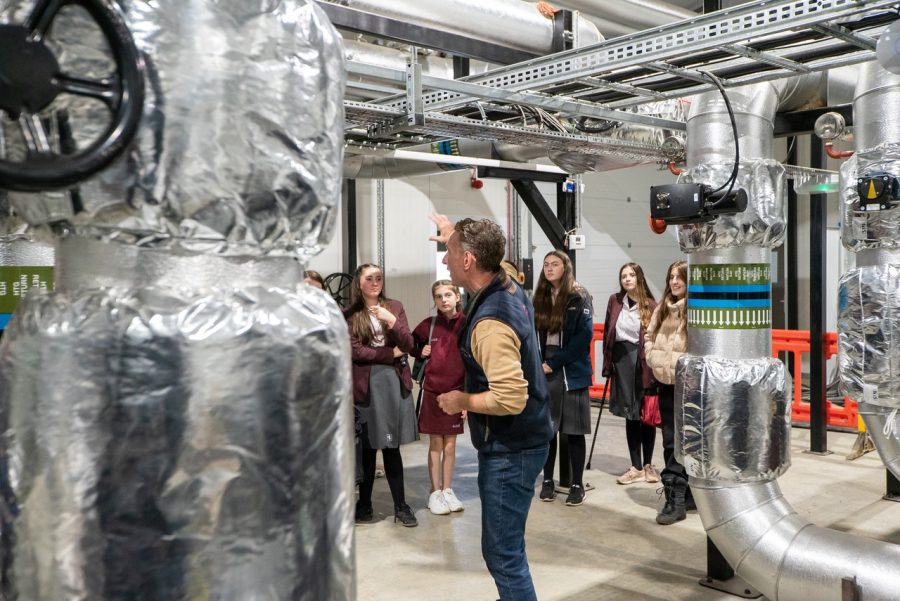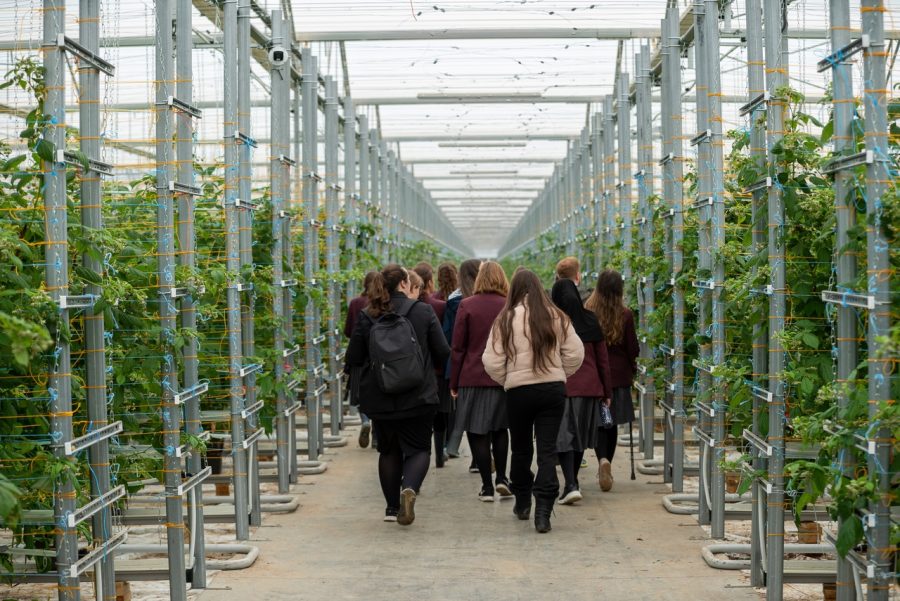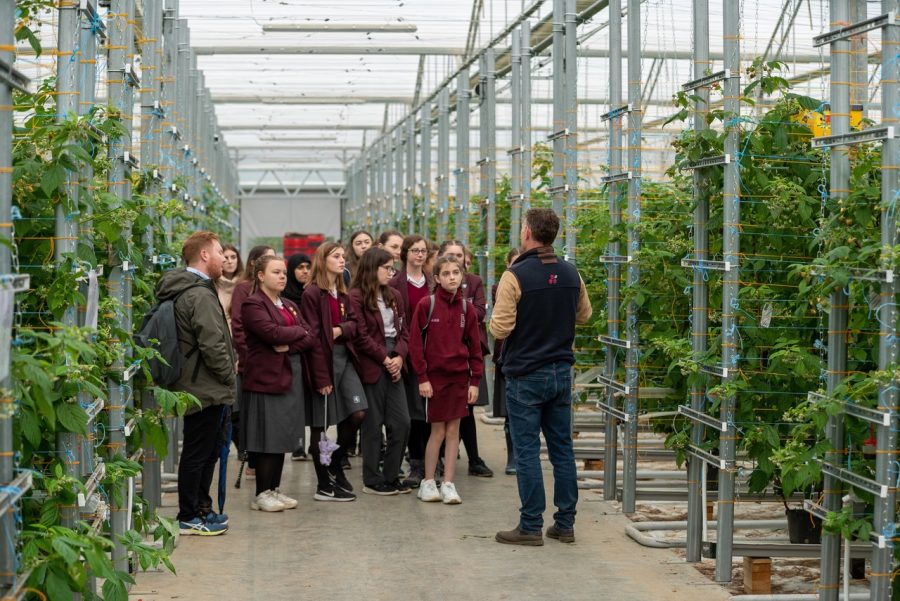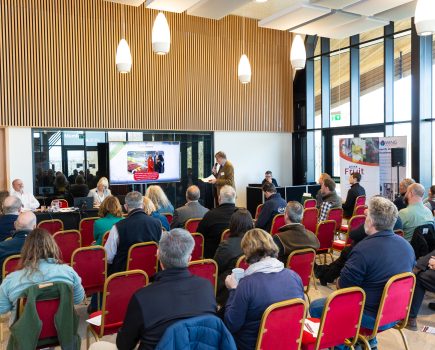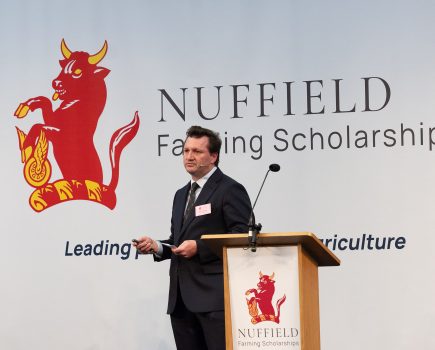Pupils from Maidstone area schools are being offered guided tours around Clock House Farm’s Yalding base to experience first-hand how a modern farm is helping to protect the natural environment through its pioneering green energy project.
The Maidstone-based soft fruit grower takes its responsibility as custodians of the natural landscape very seriously and is a shining example of best practice in terms of sustainability with a number of pioneering projects in place, including the £10 million investment in low carbon river source heating at its Yalding location. The initiative represents the most significant investment in green energy for soft fruit in the UK – and one of the largest in Europe.
One of the first schools to visit was Invicta Grammar School with pupils from its geography ‘eco society’ taking the two-hour guided tour. They will be followed by groups of pupils from primary through to secondary schools in the surrounding area who have all signed up for the tour.
he company, which is headquartered in Coxheath, Maidstone – with additional farms at Tonbridge, Hunton and Kenardington, Teston and Linton, has developed to become a recognised leader in the supply of strawberries, raspberries, blackberries, (as well as apples, and plums), with a reputation for the delivery of exceptional quality fruit with an excellent track record in adopting the latest growing techniques which observe the highest standard of responsible environmental stewardship.
All the berries are grown in high tech poly greenhouses (instead of traditional standard tunnels) provided with a consistent supply of heat from the Medway. The innovative heating process involves extraction of river water (heated by the sun) which is passed through a heat exchanger and then discharged straight back into the river having removed a couple of degrees of heat from the water. A second loop then transfers this heat to the plant room’s heat pumps to achieve a temperature of 45 degrees, which circulated out to the greenhouses. Not only does this ground-breaking system represent a greener, more sustainable approach to energy consumption, it also enables the farm to extend its growing season, providing an opportunity for consumers to purchase British fruit for longer, rather than relying on imported fruit with excessive food miles.
To further underpin Clock House’s commitment to the environment, the sustainably sympathetic agricultural activity is offset by a land sparing system where the farm has allocated a separate 8-hectare river meadow below the greenhouses to provide a large natural wilderness.
Clock House Farm has also created additional innovative projects designed to protect the planet including: the use of robotics to deliver UV-C light treatment to reduce mildew; minimising CO2 emissions; carefully monitored water management; rewilding meadows; safeguarding hectares of woodland for wildlife to thrive, and much more.
Oli Pascall, managing director of Clock House Farm said, “We are delighted to invite schools to join us on the tours which are proving extremely popular. Children of all ages need opportunities such as this to develop their knowledge, them respect the natural environment and hopefully create a lifelong interest in saving the planet. It’s great for the children to see the fantastic soft fruit grown here in the Garden of England – and to witness how our farm is working to reduce its carbon footprint and also protect the British farming sector. Of course, we are equally keen to encourage the next generation to consider the wide range of technical and grower career options open to them within farming and to attract young people with a fresh perspective to join Kent’s thriving horticulture industry.”
